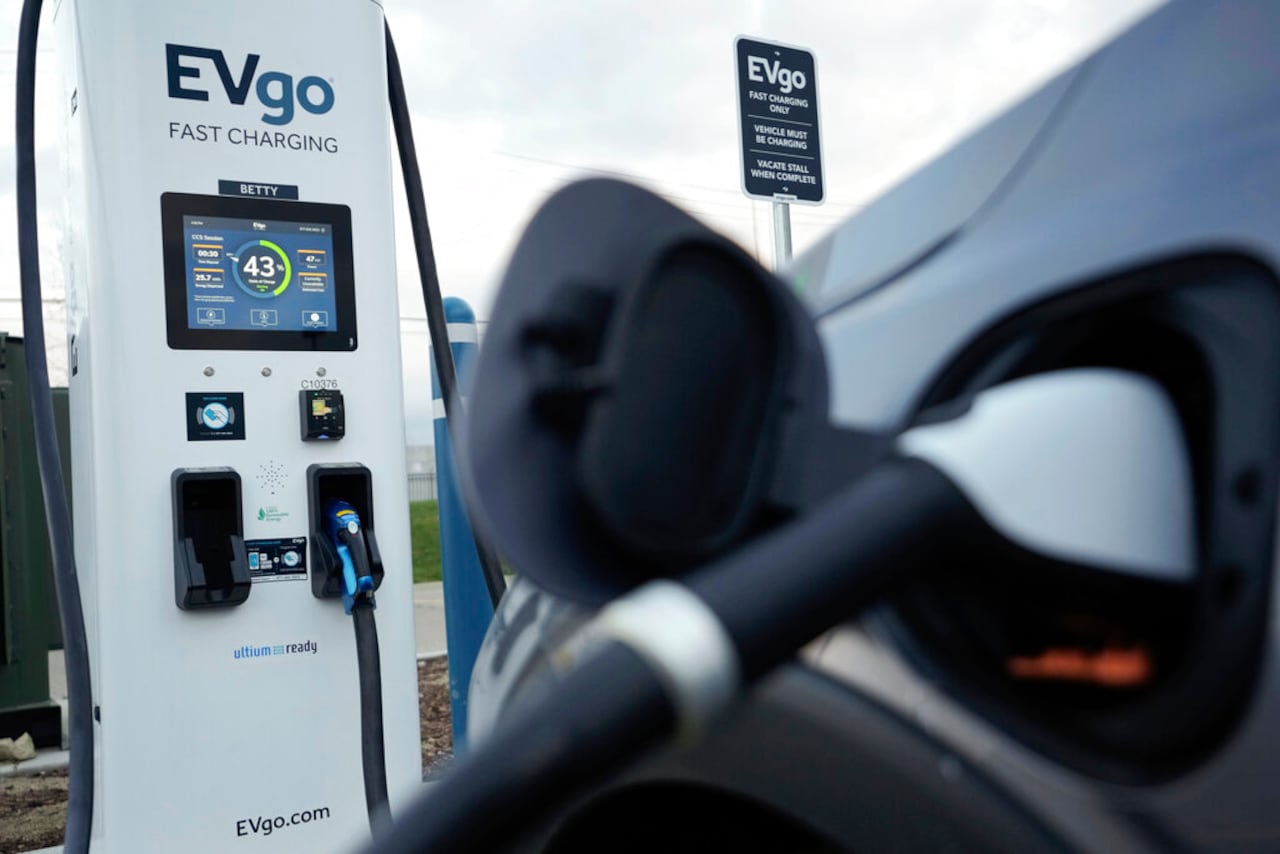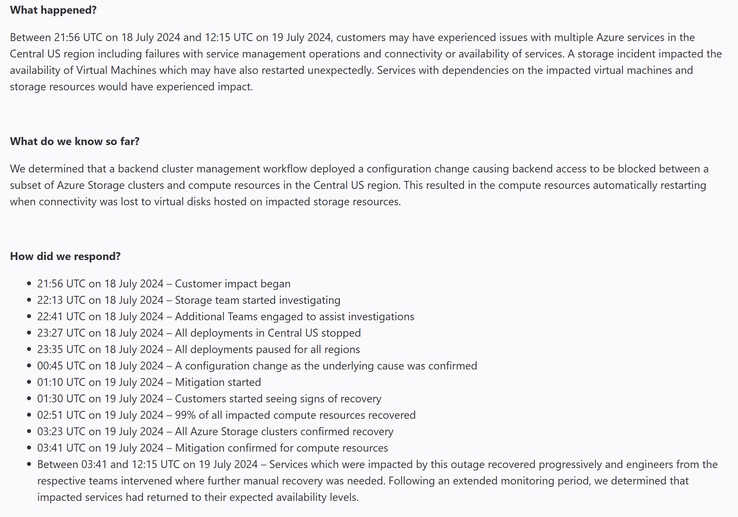Car Dealerships Renew Fight Against Mandatory Electric Vehicle Sales

Table of Contents
Economic Concerns of Dealerships Facing Mandatory Electric Vehicle Sales
The core of the dealerships' opposition lies in the significant economic challenges posed by mandatory EV sales. The transition isn't simply a matter of selling a different type of car; it requires substantial investments and adjustments to existing business models.
High upfront investment costs for EV infrastructure.
Adapting to a predominantly electric vehicle market demands considerable capital expenditure for dealerships. This includes:
- Charging station installation: Installing a sufficient number of fast and reliable charging stations requires significant upfront investment, varying greatly depending on dealership size and location.
- Specialized EV technician training: Mechanics need specialized training to service and repair electric vehicles, a cost often borne by dealerships.
- New tools and equipment: Working on EVs requires different tools and diagnostic equipment compared to gasoline-powered vehicles.
- Inventory management changes: Managing EV inventory presents new challenges, including longer lead times and the need for specialized storage and handling procedures.
This financial burden disproportionately affects smaller dealerships who lack the resources of larger corporations. The risk of insolvency looms large for those struggling to absorb these substantial upfront costs.
Uncertainty around EV consumer demand and profitability.
The market for electric vehicles is still relatively nascent and subject to fluctuations in consumer demand and technological advancements. This uncertainty creates significant risks for dealerships:
- Overstocking: Accurately predicting future EV sales is challenging, leading to the potential for overstocking and significant financial losses.
- Lower profit margins: Profit margins on EVs are often lower compared to gasoline-powered vehicles, especially considering the higher upfront investment costs.
- Rapid technological changes: Rapid advancements in battery technology and charging infrastructure mean that dealerships must continually adapt, adding to their investment needs.
Lack of government support and insufficient incentives for dealerships.
Dealerships argue that they are being unfairly burdened with the costs of transitioning to EVs without adequate government support. They advocate for:
- Grants and subsidies: Financial assistance to cover infrastructure upgrades and employee retraining.
- Tax breaks and incentives: Reducing the tax burden to help offset the high costs of EV adoption.
- Low-interest loans: Making it easier for dealerships to secure financing for necessary upgrades.
The absence of comprehensive support programs in many regions exacerbates the economic challenges faced by dealerships.
Arguments Against Mandatory Electric Vehicle Sales from the Dealerships' Perspective
Beyond economic concerns, dealerships raise several fundamental objections to mandatory EV sales:
Consumer choice and market forces.
Dealerships believe that consumer demand should drive the transition to electric vehicles, not government mandates. They argue that:
- Mandates distort the market: Artificially increasing EV sales can lead to market inefficiencies and potentially reduce consumer choice.
- Reduced vehicle diversity: A focus on EVs might lead to a reduction in the availability of other vehicle types, particularly those preferred by certain consumer segments.
- Consumer preferences: Government mandates ignore the diverse needs and preferences of consumers, who may not be ready or willing to switch to EVs en masse.
Concerns about the readiness of the electricity grid.
A widespread adoption of EVs raises serious concerns about the capacity of existing electricity grids:
- Increased electricity demand: Millions of EVs charging simultaneously could place an immense strain on power grids, potentially leading to blackouts and disruptions.
- Infrastructure upgrades: Significant investment in upgrading power grids is necessary to support the increased demand, a process that is time-consuming and expensive.
- Regional disparities: The readiness of electricity grids varies significantly across different regions, with some areas being better prepared than others.
Job security and workforce transition.
The transition to EVs necessitates changes in manufacturing and servicing processes, potentially impacting jobs within the automotive industry:
- Job displacement: A rapid transition could lead to job losses in the manufacturing and maintenance of gasoline-powered vehicles.
- Retraining needs: Workers will need significant retraining to acquire the skills needed to work with EVs.
- Support for affected workers: Government support is crucial to assist workers in transitioning to new roles.
Counterarguments and the Future of Electric Vehicle Adoption
The arguments in favor of mandatory EV sales center on environmental benefits and the urgent need to combat climate change. Proponents point to:
- Reduced carbon emissions: EVs significantly reduce greenhouse gas emissions compared to gasoline-powered vehicles.
- Improved air quality: EVs contribute to cleaner air in urban areas.
- Energy independence: Increased reliance on EVs can reduce dependence on fossil fuels.
Technological advancements offer potential solutions to some of the dealerships' concerns:
- Faster charging technologies: Reducing charging times could alleviate some concerns about grid strain.
- Improved battery technology: Longer battery ranges and faster charging will increase consumer acceptance.
Finding a compromise that balances environmental goals with the economic realities of the automotive industry is critical. Gradual implementation of mandates, increased government support for dealerships, and extended timelines could ease the transition.
Conclusion
The debate surrounding mandatory electric vehicle sales is multifaceted and complex. Car dealerships' concerns about the economic viability of the transition, the readiness of the electricity grid, and consumer choice are legitimate and deserve careful consideration. However, the environmental benefits and long-term sustainability goals driving the mandates remain compelling. The key takeaway is the necessity for open dialogue and collaboration between all stakeholders – government agencies, automakers, and dealerships – to find a sustainable path forward. The future of electric vehicle sales hinges on a workable compromise that addresses concerns about mandatory EV sales and enables a smooth transition to a cleaner transportation sector. Ignoring the concerns of car dealerships will only hinder the progress towards a successful and equitable adoption of electric vehicles.

Featured Posts
-
 Ftcs Battle Against Meta The Instagram And Whats App Antitrust Fight
May 01, 2025
Ftcs Battle Against Meta The Instagram And Whats App Antitrust Fight
May 01, 2025 -
 Dragon Den Unexpected Twist As Entrepreneur Snubs Offers Takes Gamble
May 01, 2025
Dragon Den Unexpected Twist As Entrepreneur Snubs Offers Takes Gamble
May 01, 2025 -
 Analyzing Dragons Den Deals Identifying Profitable Opportunities
May 01, 2025
Analyzing Dragons Den Deals Identifying Profitable Opportunities
May 01, 2025 -
 Breda Elektriciteitsstoring 30 000 Getroffen Door Uitval
May 01, 2025
Breda Elektriciteitsstoring 30 000 Getroffen Door Uitval
May 01, 2025 -
 Priscilla Pointer Dies Dallas And Carrie Star Passes Away
May 01, 2025
Priscilla Pointer Dies Dallas And Carrie Star Passes Away
May 01, 2025
